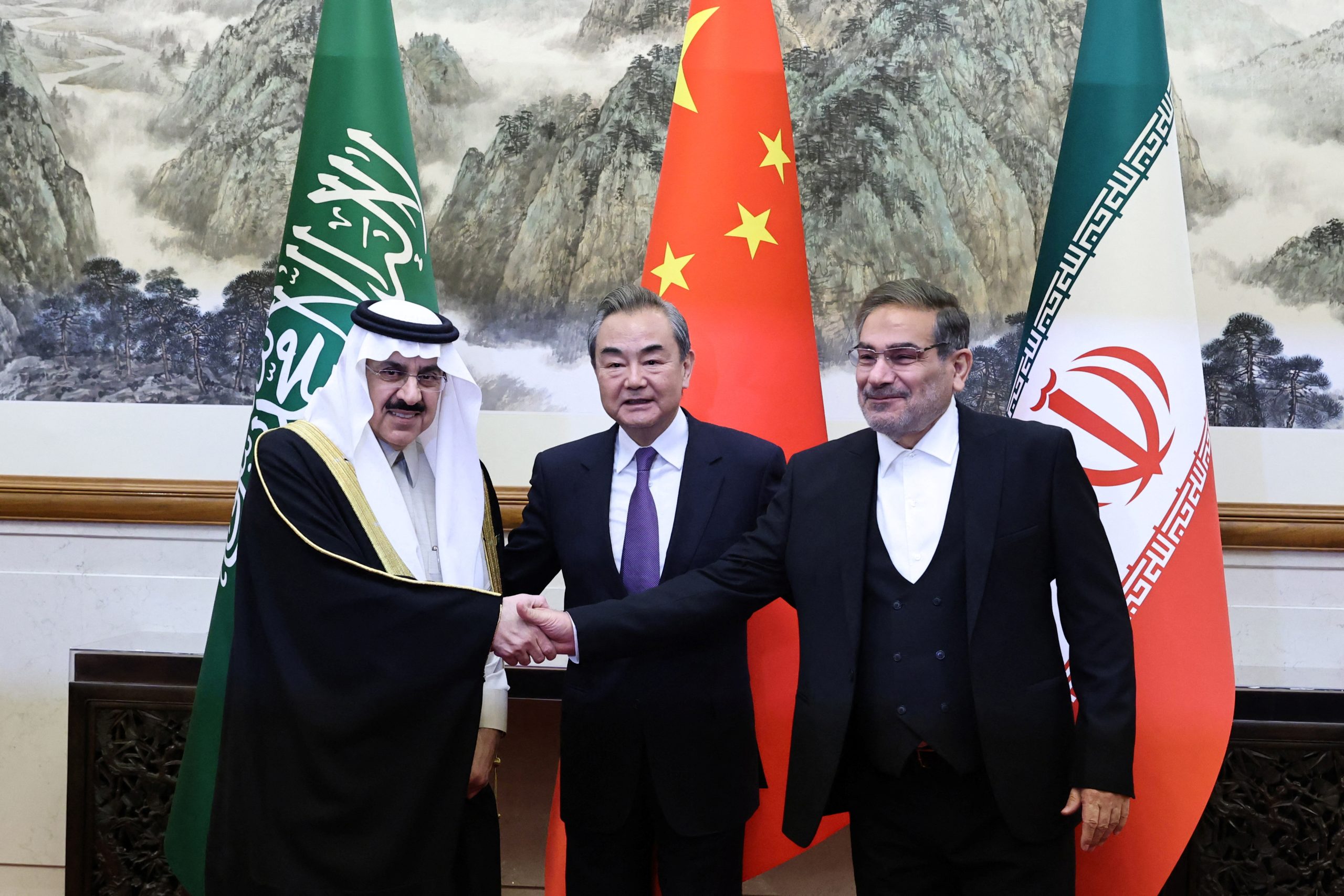
Willie R. Tubbs, FISM News
[elfsight_social_share_buttons id=”1″]
The Middle East has become the latest arena in the wide-reaching geopolitical rivalry between the United States and China, and one nation is using the situation to its own advantage.
As first reported by the Associated Press, Saudi Arabia, long an ally of convenience with the United States, has shown an ability to improve its standing by allowing both world powers to achieve wins in the region.
“We’re looking forward here in trying to make sure that this strategic partnership really does in every possible way support our national security interests there in the region and around the world,” the AP quoted National Security Council spokesperson John Kiby as saying.
On the U.S. side, very little has changed. The United States and American business interests retain quite the stake in Saudi Arabia.
Boeing only recently announced it had signed a massive deal to provide aircraft to the Saudis. More important, at least as pertains to Saudi Arabia’s economic fortunes, the United States remains as beholden to Saudi-backed oil as ever.
No amount of maneuvering on the part of China or allegations of human rights abuses levied against the Saudis is likely to change that.
However, China is most assuredly moving to become a major influence in the region. This has included a military show of force via a joint training with Russia and Iran as well as increased diplomatic activity.
Additionally, China, not the United States, was a key figure in brokering a deal between Saudi Arabia and Iran, two long-time rivals.
It was largely a matter of China and Saudi Arabia playing to their advantage.
China – which has direct diplomatic relations with Iran (the U.S. does not) and is the thread upon which Iran’s hobbled economy hangs – was in a position to press Tehran into signing an agreement that was, the AP reports, largely already finalized.
Meanwhile, Saudi Arabia was able to shore up support from the new world power and foster future economic deals by allowing Beijing to play the role of international peace broker.
Ultimately, the Iran-Saudi Arabia peace accord was the latest example of China successfully widening its Middle Eastern footprint while the U.S. was left mostly on the sidelines.
